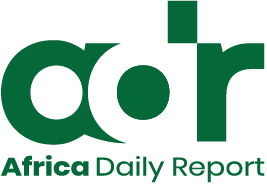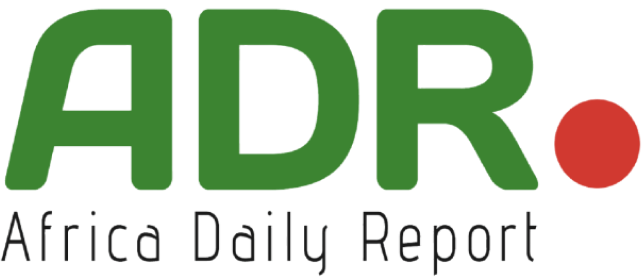
Summary:
The debate over the constitutional revision in the Democratic Republic of Congo (DRC), initiated by President Félix Tshisekedi, has sparked significant political tension. Presented as a necessity to modernize outdated institutions, this initiative is perceived by the opposition and civil society as a maneuver to extend presidential power. In this article, we analyze the issues surrounding this reform, explore the criticisms and support it has generated, and examine the potential consequences of this project for the country’s democratic future.
The Origin of the Controversy
Launched by President Félix Tshisekedi during a speech in Brussels, the idea of revising a “obsolete” Constitution has provoked strong reactions among Congolese society and political circles. Enacted in 2006 to stabilize a conflict-ridden country, the current Constitution reflects that legacy, having been drafted to “favor the belligerents,” according to Tshisekedi. While the idea of an overhaul has found supporters within the ruling party, the Union for Democracy and Social Progress (UDPS), it is seen as a threat by the opposition, who view it as a means to increase the president’s power.
Sidebar: The Union for Democracy and Social Progress (UDPS)
Founded in 1982 by Étienne Tshisekedi, the current president’s father, the UDPS is one of the oldest and most influential political parties in the DRC. Historically, the UDPS played a pivotal role in opposing Mobutu Sese Seko’s authoritarian regime. Now in power, the UDPS promotes constitutional reforms that some perceive as a means to cement its dominant position in the Congolese political landscape.
A Constitution “Drafted under the Threat of Arms”?
Jean-Claude Tshilumbayi, First Vice President of the National Assembly, stated that the Constitution resulted from a tense historical context, drafted by armed actors. According to him, the text reflects the compromises of that era but is ill-suited to current challenges. “You put in this article, I lay down the rifle; you take it out, I keep it and remain in the bush,” he remarked, describing the negotiation atmosphere. This raises a fundamental question: Can a stable future be built on a text shaped by war compromises? Is the revision a genuine necessity or a carefully calculated political move?
Opposition and Civil Society: Concern over Political Intentions
The opposition, supported by civil society voices, fears that the constitutional revision serves as a pretext for resetting presidential terms, allowing Tshisekedi to extend his power beyond current limits. Opposition figure Moïse Katumbi warns, “We are not naive. If some want to touch the Constitution, it’s to allow the current president a third term.” The citizen movement Lucha adds, “No Congolese should dare alter our Constitution to satisfy personal ambitions for longevity.” This is a stark reminder of the anti-Kabila protests, where civil society succeeded in preserving institutional integrity.
Reform Proposals in the Name of Development?
According to supporters of the reform, the revision targets several articles of the Constitution considered “rigid” or ill-suited to the DRC’s modern realities. Discussions mainly focus on Article 220, which prohibits modifications to the number and duration of presidential terms, as well as articles related to the responsibilities of governors and provincial deputies. Proponents argue that these reforms aim to improve governance efficiency by reducing jurisdictional conflicts between the central government and the provinces, a persistent issue that has often led to institutional deadlock.
“Constitutional revisions can strengthen democracy and stabilize institutions if conducted transparently and inclusively,” says Pierre Englebert, an expert on African politics and researcher with the Africa Program at the Foundation for International Peace. “However, in the DRC, where the history is marked by distrust in institutions, any reform attempt is often met with suspicion.”
Toward a Revision in 2025?
Tina Salama, the presidential spokesperson, stated that a commission of experts is scheduled to be established in 2025, emphasizing that the project is not urgent. However, political pressure is mounting, and the opposition questions the timing of this initiative as the country faces ongoing security crises in the East. The war with the M23 rebel group and the prolonged state of siege in certain provinces raise concerns about the priority given to constitutional revision at this critical time.
Sidebar: Who is Félix Tshisekedi?
Son of historical opposition leader Étienne Tshisekedi, Félix Tshisekedi came to power in 2019 after winning the presidential election. As the UDPS leader, he promised to modernize the country and ensure stability after years of conflict. However, his push to revise the Constitution has raised suspicions regarding his intentions, with some fearing he may seek to extend his term beyond the set limit.
A Revealing Historical Context
The current debate recalls the tensions preceding the end of Joseph Kabila’s mandate. Between 2015 and 2018, massive protests, led by the Catholic Church and civic movements, rose against the idea of a third term for Kabila. Today, the opposition to extended mandates remains, but the UDPS, once a part of the resistance, now holds power. This reversal highlights the evolving dynamics of Congolese politics.
International Comparisons: Lessons and Warnings
Recent history shows that similar constitutional revisions in Africa and elsewhere have sometimes led to social crises. In Burkina Faso, protests led to the resignation of Blaise Compaoré in 2014 after he attempted to extend his power. Similarly, in Senegal, civic movements influenced former President Abdoulaye Wade’s decision to abandon a controversial constitutional reform. Could the DRC follow the same path if civil society unites to oppose this project?
“African citizens have become highly vigilant and often resist reforms perceived as designed to extend political mandates,” observes Nic Cheeseman, professor of African democracy at the University of Birmingham. “This growing vigilance reflects an awareness of democratic rights and opposition to institutional manipulation.”
Conclusion: What Future for the DRC?
The constitutional revision project has heightened tensions in the DRC. While it represents an opportunity to reform institutions deemed inadequate, it raises questions about the true intentions of its proponents. The DRC’s future will depend on its leaders’ ability to balance institutional modernization with respect for democratic foundations, under the watchful eye of a population and civil society determined to defend the integrity of their Constitution. The question remains: Will the DRC choose the path of reform for stability, or of protest to defend democracy?
© O Bulamba / Africa Daily Report




